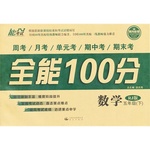题目内容
第二节 简答题(共4小题; 10分)
阅读短文,根据所要求的字数回答问题。
TV viewers may no longer be able to hear English abbreviations (缩写), like "NBA" (National Basketball Association), from mainland broadcasters.
China Central Television (CCTV) and Beijing Television (BTV) confirmed to China Daily on Tuesday that they had received a notice from a related government department, asking them to avoid using certain English abbreviations in Chinese programs.
The channels, however, did not reveal exactly how many English abbreviations are listed in the notice.
The notice not only limits the use of English abbreviations in sports news, but also in economic and political news. Abbreviations such as "GDP" (gross domestic product), "WTO" (World Trade Organization) and "CPI" (consumer price index) will also be substituted(代替)with their Chinese pronunciations, it said.
The move comes after a growing number of national legislators(立法委员)and political advisors called for preventive measures to preserve(保存)the purity of the Chinese language.
"If we don't pay attention and don't take measures to stop mixing Chinese with English, the Chinese language won't remain pure in a couple of years," said Huang Youyi, editor-in-chief of the China International Publishing Group and secretary-general of the Translators' Association of China.
The restricted use of English abbreviations on Chinese television programs has provoked a debate among scholars.
"It makes no sense to introduce a regulation to prevent the use of English in the Chinese language in the face of globalization(全球化)," Liu Yaoying, a professor at the Communication University of China, said on Tuesday. "It is cultural conservatism(保守主义)。"
"If Western countries can accept some Chinglish words, why can't the Chinese language be mixed with English?"
86. What does the government tell TV stations to do in the notice? (no more than 12 words)
_________________________________________________.
87. In what TV programs English abbreviations are limited? (List three of them)
_________________________________________________.
88. According to Huang Youyi’s opinion, why should we stop using English abbreviations?
(no more than 10 words)
_________________________________________________.
89. “Chinglish” in the last sentence means __________________. (no more than 10 words)
86. To avoid using certain English abbreviations in Chinese programs.
87. Sports news, economic news and political news.
88. To preserve the purity of the Chinese language.
89. The English language mixed with Chinese.

 宝贝计划期末冲刺夺100分系列答案
宝贝计划期末冲刺夺100分系列答案 能考试全能100分系列答案
能考试全能100分系列答案